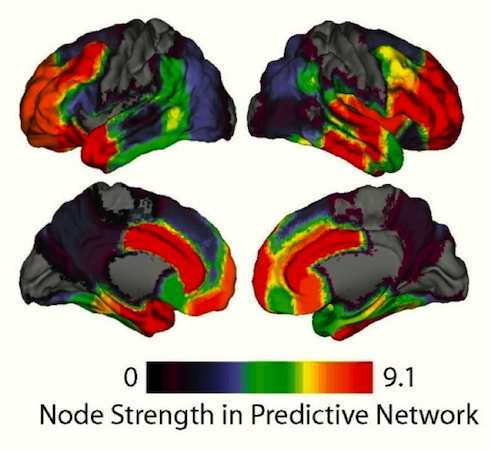New research led by the ICB’s Scott Grafton finds that overthinking may hinder basic learning.

The ICB’s co-Director, Scott Grafton and colleagues from the University of California, the University of Pennsylvania, and Johns Hopkins University have been studying why some people are able to master a new skill rather quickly, while others require more time and practice.
In their study published in Nature Neurosicence researchers measured the connections between different brain regions while participants learned to play a simple game. They discovered that the quickest learners show different neural activity in comparison with the slower ones. The study offers new insight into what happens in the brain during the learning process and sheds light on the role of interactions between different brain regions. Most importantly, the findings suggest that recruiting unnecessary parts of the brain for a given task, similar to over-thinking the problem, plays a critical role in this difference.
Grafton, Director of the UCSB Brain Imaging Center, claimed: “It’s useful to think of your brain as housing a very large toolkit… When you start to learn a challenging new skill, such as playing a musical instrument, your brain uses many different tools in a desperate attempt to produce anything remotely close to music. With time and practice, fewer tools are needed and core motor areas are able to support most of the behavior. What our laboratory study shows is that beyond a certain amount of practice, some of these cognitive tools might actually be getting in the way of further learning.”
In this study, conducted at UCSB’s Brain Imaging Center, volunteers participated in a game while their brains were scanned with fMRI. The volunteers responded to a sequence of color-coded notes by pressing the corresponding button on a hand-held controller. Six predetermined sequences of 10 notes each were shown multiple times during the scanning sessions. Participants were instructed to play the sequences as quickly and as accurately as they could, while responding to the cues they saw on a screen. Afterwards, participants practiced the task at home while researchers monitored their activity remotely. Further scans were made at the Brain Imaging Center at two-, four- and six-week intervals to show how efficient the practice was for mastering the skill. The completion time for all participants manifested at different rates. Some subjects picked up the sequences immediately, while others gradually improved their skill over the six-week period.
Lead author Danielle Bassett, a former ICB Postdoctoral Researcher, who is a Skirkanich Assistant Professor of Innovation at the University of Pennsylvania explained: “We weren’t using the traditional fMRI approach where you pick a region of interest and see if it lights up… We looked at the whole brain at once and saw which parts were communicating with each other the most.” She added: “When network scientists look at these graphs, they see what is known as community structure…There are sets of nodes in a network that are really densely interconnected to each other. Everything else is either independent or very loosely connected with only a few lines.”
Grafton contemplates, “Previous brain imaging research has mostly looked at skill learning over—at most—a few days of practice, which is silly… Who ever learned to play the violin in an afternoon? By studying the effects of dedicated practice over many weeks, we gain insight into never before observed changes in the brain. These reveal fundamental insights into skill learning that are akin to the kinds of learning we must achieve in the real world.”
The research team came up with counterintuitive findings: the participants who showed decreased neural activity learned the fastest. Interestingly, the critical distinction was in cognitive control centers not directly related to seeing the cues or playing the notes: the frontal cortex and the anterior cingulate cortex.
These brain areas are thought to be most responsible for what is known as executive function. Grafton explains: “This neurological trait is associated with making and following through with plans, spotting and avoiding errors and other higher-order types of thinking… In fact, good executive function is necessary for complex tasks but might actually be a hindrance to mastering simple ones.” Grafton also noted that these cognitive control areas are among the last brain regions to fully develop in humans, which may explain why children are able to acquire new skills quicker than adults.
Further studies of the research team will investigate why some people are better than others at shutting down the connections in these parts of the brains.
